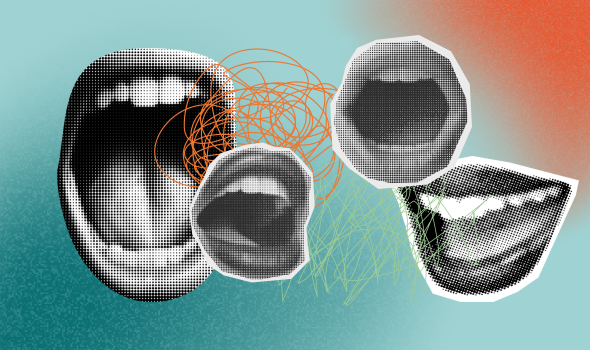Hostile language led to riots, now it needs to change
Hostile language led to riots, now it needs to change

Our communities have been attacked. We have been made to feel afraid in our own homes. We have been made to feel unsafe on our own streets. All of this caused by a minority of far-right thugs. What we have seen can be looked at as terrorism against our communities. A minority of racists attempting to use violence to push their ideological agenda.
We have also seen how people come together to oppose hate and division though. Thousands of people have stood up and stood against the far-right. They have shown that we are all better than this. That is where we need to start as we move forward and rebuild.
People are still scared; we are still scared. The violence we saw on our streets did not just come out of nowhere. People will, and already are, trying to claim it had little to nothing to do with the hostile and dehumanising rhetoric we have seen directed against migrants, against us, over the years, but it plays a part. It may not be the single cause, but it is undeniably a significant one, and one which needs addressing if we are to bring communities together again.
It is not just the overt racism of the far-right which stoked the violence. It is the decades of a drip feed of dehumanising language. In 2012 the then Home Secretary, Theresa May, even called her anti-migrant policies the “Hostile Environment”. There is no getting away from the impact which language has played in this.
Language such as “illegal”, “mass”, “importing”, “cheap labour”, the list is long, creates the impression that we are some kind of “other”. It makes it easier for people to justify attacking us when they feel disconnected from the state. People want someone to blame when they are struggling, and politicians for years have made us that scapegoat. It must change now.
There will be a lot of talk over the coming weeks and months about what could have been done differently to prevent the riots, and how they could have been handled better. A lot of that will focus on law and order.
Our concern is that we will see an increase in focus on policies for “controlling immigration”, the same language which helped contribute to the violence. We cannot ignore or gloss over that. We must address how racism which was once more “covert”, and “quiet”, has now become “overt” and shouted in the streets. There are no number of “concerns” which legitimise the hate and hostility which saw people attacking minorities and trying to burn people seeking asylum in their accommodation. No number of “concerns” can ever justify what we saw, and the fear it caused so many people.
Tougher immigration policies will not prevent this happening again, but will the stoke the fire further. They would show the rioters that they can intimidate and threaten people living their lives, and still achieve their overall goals. It would embolden them, not placate them. Such policies, and the language which goes with them, would give racists a license to act, and make a mockery of those of us who have been their victims.
It is essential that we talk about the language which has gone uncontested. It is crucial that the voices and experiences of migrants, people of colour, and minorities are heard. We need to change the way in which migration is discussed. It can’t be framed as a negative anymore. It cannot be used as a way to avoid dealing with other issues which affect people’s lives. It needs to be discussed in a way which shows that we are human beings, that we live here, that we have lives, hopes and dreams. That we are not the problem, but that the way we have been talked about is.


